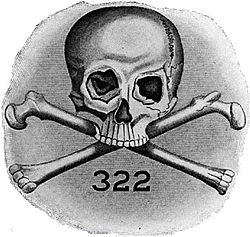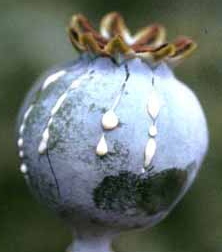Contents
- Introduction
- Preface
- Overview
- Relief Valve
- LECTURE 1: Why We Are In The Dark About Money
- LECTURE 2: The Con
- LECTURE 3: The Vatican-Central to the Origins of Money & Power
-
LECTURE 4: London The Corporation Origins of Opium Drug Smuggling
- Early Barter System
- Trade started with a Sail Boat called a Carrack
- Corporations and Maritime Time Line
- Marine Merchants Timeline
- Levant Company
- London The Corporation
- Church of England The Corporation
- Just Steal It - EIC Commits First Corporate Espionage!
- Matheson & Jardine Families
- The Bankster Families Who Control Opium Smuggling
- Imperialism Rules Enlightened Despotism
- Dutch East India Company
- The Honorable East India Company
- Hong Kong Shanghaied
- Chatham House
- Thuggee the First Fraternity
- Bank of England
- Pirate Bankers
- EIA First Contact With Shanghai China
- The Collapse of the Royal African Company: How Open Trade Trumped the Monopoly
- Shanghai and the First Contact with the West
- Opium - TimeLine
- Opium Trade
- The Opium Wars
- Letter to Opium Drug Smuggling Queen Victoria
- Lecture 4 Objectives and Discussion Questions
- LECTURE 5: U.S. Pirates, Boston Brahmins Opium Drug Smugglers
- LECTURE 6: The Shady Origins Of The Federal Reserve
- LECTURE 7: How The Rich Protect Their Money
- LECTURE 8: How To Protect Your Money From The 1% Predators
- LECTURE 9: Final Thoughts
England Invades China
The Opium Trade
"If the trade is ever legalized, it will cease to be profitable from that time. The more difficulties that attend it, the better for you and us." -- Directors of Jardine-Matheson
 Skull and Bones Icon
Skull and Bones Icon
Why all this interest in China? Well, China, among other things, is one of the largest producers and users of opiates in the world.
For a while, in the 1800s, the Yankee Clippers in Connecticut and Massachusetts were the fastest ships on the ocean. Speed was crucial to the opium trade; whoever made the trip from Turkey/India to Macao/Hong Kong/Shanghai first got the most for their goods.
During the Opium Wars, the U.S. chose to stand on the sidelines and cheer for the English and French, knowing that treaty obligations would bring the U.S. a share in the spoils. Russell and Company was at times the only trading house operating in Canton and used the opportunity to developed strong commercial ties and handsome profits.
 China and the Opium Wars: British engaging the Chinese January 1841
China and the Opium Wars: British engaging the Chinese January 1841
Powerful national interests were behind the drug trade, because American traders were badly in need of some article the Chinese would buy, since by this time the seal breeding grounds had been nearly wiped out. If the Chinese had not bought opium from Americans, then United States imports of silk, porcelain and tea would have to paid in precious coin, which was in short supply. In 1843, when the Port of Shanghai was opened, Russell and Co. was one of its earliest traders.
The China Trade and The Opium Wars by William Litynski 31 pages
Deadly Opium Imperialism and the Arrow War 1856 -1860 in China
How could British protection be purchased in this way? Apparently in those days, a Chinese could go to Hong Kong and by means of some 'mystification', such as becoming the tenant of Crown lands or becoming a partner with somebody who was, obtain a colonial register for his ship and get a Briton for a captain. What sort of a Briton was he? He was 'some loose fish, some stray person, or runaway apprentice, or idle young seaman'. He had plenty of grog to drink and nothing else to do because he was not expected to take part in the working of the ship. His sole value lay in his being British. Like a scarecrow, his only function was to scare off the Chinese maritime police.
--
In a dramatic reversal the emperor, even before he heard that the plot had worked, took back what he had said about letting the British into Canton City for a look around, and endorsed the forgery. The man who penned the Talse edict', Commissioner Xu, transcribed it in his autobiography as if it were genuine. His account is included in a famous collection of materials on the Arrow War. His collaborator, Commissioner Yeh, did the same. In a subsequent memorial to the next emperor, he treated the Talse edict' as if it had been true. This memorial has been included in an equally authoritative collection of primary sources. Small wonder that the Chinese have always been dazzled by this unthinkable victory.As a result of the Arrow incident, the British bombarded Canton. On 29 October 1856 they made a hole in the city wall and so achieved entry. There-upon, 'the American flag was this day borne on the walls of Canton'. What had happened? The U.S. consul at Hong Kong, James Keenan, followed the blue-jackets into the breach, 'accompanied by a sailor from one of the U.S.

2016 The opium farmers with the police on their side Opium poppy cultivation in Afghanistan (1994-2015)
12/29/14 The Worst Narco-State in History? After 13-Year War, Afghanistan’s Opium Trade Floods the Globe
In the 13 years since the United States invaded Afghanistan in 2001, the country’s opium production has doubled, now accounting for about 90 percent of the world’s supply. To learn more, we are joined by Matthieu Aikins, a Kabul-based journalist whose latest report for Rolling Stone magazine explores Afghanistan’s heroin boom. "What has happened in Afghanistan over the last 13 years has been the flourishing of a narco-state that is really without any parallel in history," Aikins says. "This is something that is extraordinary, that is catastrophic, that has grave danger for the future and yet there has been virtually no discussion of in recent years."
MATTHIEU AIKINS: Everyone is growing it. Everyone is profiting. It touches all levels of Afghan society, both sides of the conflict, the Taliban and the government. The Taliban is definitely involved. They profit by taxing the trade, by taxing growers in their areas. But the government is even more involved. Government-linked officials are believed to earn an even higher piece of revenue from the opium trade.
Recoverable fatal error: Object of class stdClass could not be converted to string in DatabaseStatementBase->execute() (line 2173 of /home/guavaberry/public_html/includes/database/database.inc).